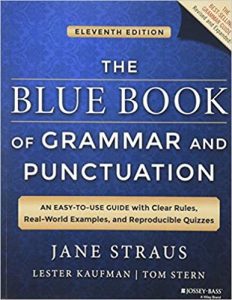Is Email Grammar Important?

When I ran a user survey at the end of last year, one of the top topics subscribers voiced their opinions on most was proper writing skills. Many were frustrated with those who emailed them with typos, incomplete sentences, and incorrect grammar.
Many folks commented, “Didn’t they learn this stuff in school?” “Don’t they proofread?”
We are not born with these skills or education. Writing skills are acquired as we go through grade school for the basics, high school for more instruction, and those who go on to college for additional practice and skill-building.
Then, we have to keep using them and honing those skills. Writing skills do not happen by osmosis and need to be perpetually grown.
We learn then forget.
So we learned all these guidelines and how to write — but what happened? Technology happened.
SMS, texting, quick chats, and now many communications are blurbs, not complete sentences. Emojis have replaced explaining what we mean with anemic punctuation.
And if we aren’t writing full thoughts, why capitalize? There is no need to spellcheck—”they know what I mean.” We became lazy.
Email is simply communicating with the written word, right? How can you communicate if your comments are misspelled or not used with proper case, tense, or punctuation?
Because of this lack of effort, many misunderstandings are unnecessarily created. Take time to proofread and avoid misconceptions.
Grammar is not just for business or professional authors. You need to be understood and taken seriously.
Providing a positive impression in all your communications can help you excel in many ways by offering an educated and, more importantly for business, a credible and professional perception.
But I’m not an author or “writer”.
Well, yeah, you are. If you are writing an email, you are the author.
But I’m not communicating with businesses, just family and friends!
Take my word for it — family and friends will appreciate clarity in their email communications with you. Why would you want to communicate as though you have no concern if you are understood?
If you think about it, you’ll probably admit you are just being lazy. That’s not a good look, either.
Perceptions Do Matter
Communicating correctly is what educated adults do. As someone who writes more than most, I’m constantly improving my writing skills. I am still learning grammar and good writing by having four websites (and being corrected when I run astray).
One of the tools I have used that can help you to hone your writing and grammar skills is Grammarly.
Whether you use Grammarly, learn on your own, or purchase some books to have on hand to refer to when needed — make an effort to improve continually.
Communicating ideas and emotions with the written word has existed since the beginning of time. Those who take this skill seriously and work on writing clearly will enhance their personal (and business) relationships.








